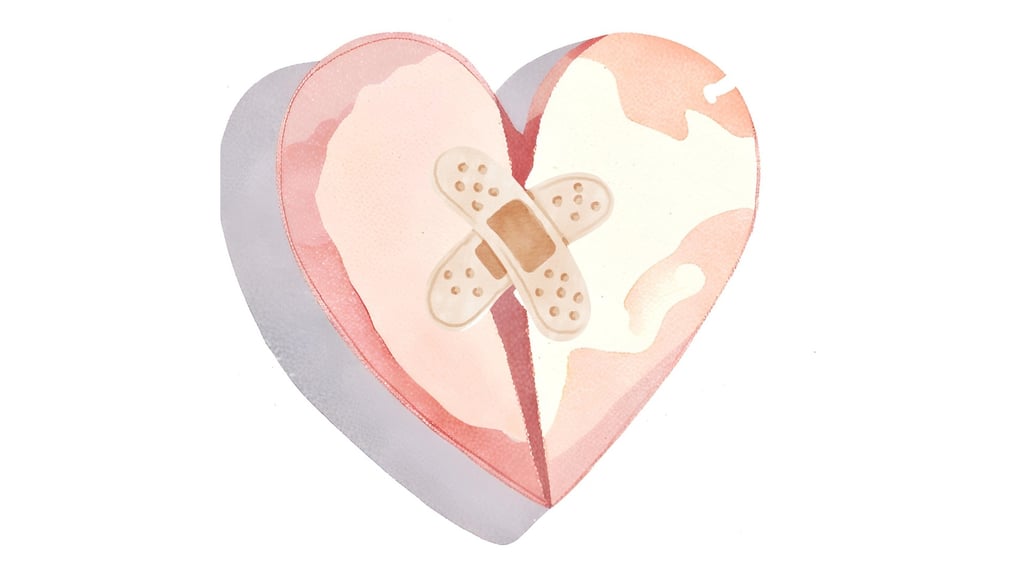Are Second Chances an Endangered Species?
JUST ASKINGLIFELOVE
Victoria Guillou
12/3/2024


© Colonne / Canva
This one is for Kincso and Marta—Are they willing to learn and do better?
I’ve been noticing something lately: we seem to be running out of room for forgiveness. Mistakes have become public enemy number one, and it feels like the world expects everyone to be flawlessly perfect from the get-go.
It’s a paradox, really. On one hand, we’re all quietly hoping others will forgive our blunders and shortcomings. On the other, we’ve become ruthless when it comes to holding people accountable, especially online. Every day, I scroll through posts and comments that read something like, “If they cared, they wouldn’t have done it in the first place. Don’t waste your time on someone who can’t get it right. Cut them off.”
Of course, there’s wisdom in setting boundaries. But I can’t help feeling like we’ve lost the nuance of grace in our increasingly black-and-white society.
The Price of Perfection
Here’s the thing: nobody is born perfect. Life doesn’t come with a manual, and as far as we know, this is everyone’s first trip around the sun. Mistakes aren’t just inevitable—they’re fundamental to being human. They’re how we learn, grow, and become better. Yet somewhere along the way, it seems like the permission to fail has been reserved only for the young. We expect teenagers to mess up—they’re figuring things out, after all. But the minute someone turns 18 or enters adulthood, society suddenly expects them to know exactly how to act, what to say, and how to navigate relationships flawlessly.
Newsflash: adulthood doesn’t come with a “how to be perfect” upgrade. People are still messy, complicated, and figuring it out—just with higher stakes.
Forgiveness vs. Foolishness
Now, don’t get me wrong: I’m not advocating for unlimited forgiveness in every scenario. There’s a difference between giving someone the space to grow and letting them trample all over your boundaries. For example, let’s say someone close to you doesn’t communicate as much as you’d like. You’ve mentioned it to them—maybe even more than once—and nothing changes. At that point, their lack of effort is no longer a simple mistake; it’s a pattern. And patterns, my friends, deserve to be addressed accordingly.
But what about the first slip-up? What about the moments when someone genuinely doesn’t realize they’ve hurt you or made a poor choice? If we “next” people at the first sign of imperfection, are we really giving them the chance to grow into the person we’d like them to be? It’s a slippery slope. On one end, you’ve got standards (which, let’s be clear, are very important—don’t lower them for anyone). On the other end, you’ve got the danger of expecting people to be mind-readers or to have an emotional PhD before they’ve even enrolled in Life 101.
The Case for Second Chances
Think about the times someone has given you a second chance. Maybe it was a teacher who let you redo an assignment, a friend who forgave your late-night meltdown, or a partner who gave you the space to figure out how to show up better in the relationship. Where would you be today if nobody had ever extended you that grace?
The truth is, the ability to forgive—and to give someone the opportunity to redeem themselves—requires strength. It’s not naive or weak to believe in someone’s potential. On the contrary, it takes courage to say, “I see you, flaws and all, and I’m willing to let you try again.”
But if someone repeatedly crosses a line you’ve clearly drawn, it’s okay to walk away. Forgiveness doesn’t obligate you to tolerate behavior that chips away at your self-worth. If we want to build relationships (and a society) where people feel safe to grow, we need to make space for mistakes. Not every slip-up is a red flag. Not every error is a sign of malice or neglect. So the next time someone messes up, take a breath before you “cancel” them. Ask yourself: was it a genuine mistake? Did they apologize?
Because at the end of the day, none of us are perfect. And if we can’t make room for imperfection in others, how can we expect them to do the same for us?
Want to speak about something precisely?
Just tell me, I'll (or we ?) write about it...

